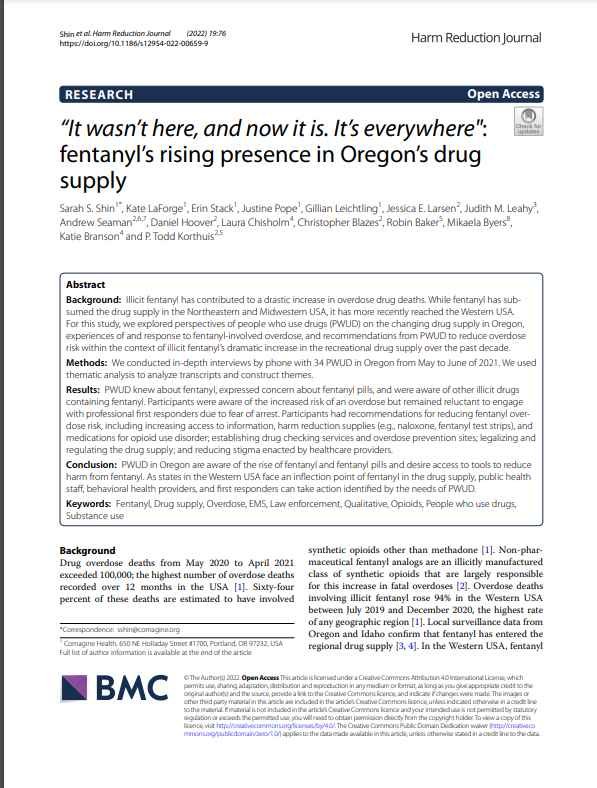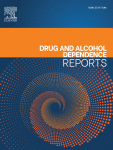By Sarah S. Shin, Kate LaForge, Erin Stack, Justine Pope, Gillian Leichtling, Jessica E. Larsen, Judith M. Leahy, Andrew Seaman, Daniel Hoover, Laura Chisholm, Christopher Blazes, Robin Baker, Mikaela Byers, Katie Branson & P. Todd Korthuis
Background
Illicit fentanyl has contributed to a drastic increase in overdose drug deaths. While fentanyl has subsumed the drug supply in the Northeastern and Midwestern USA, it has more recently reached the Western USA. For this study, we explored perspectives of people who use drugs (PWUD) on the changing drug supply in Oregon, experiences of and response to fentanyl-involved overdose, and recommendations from PWUD to reduce overdose risk within the context of illicit fentanyl’s dramatic increase in the recreational drug supply over the past decade.
Methods
We conducted in-depth interviews by phone with 34 PWUD in Oregon from May to June of 2021. We used thematic analysis to analyze transcripts and construct themes.
Results
PWUD knew about fentanyl, expressed concern about fentanyl pills, and were aware of other illicit drugs containing fentanyl. Participants were aware of the increased risk of an overdose but remained reluctant to engage with professional first responders due to fear of arrest. Participants had recommendations for reducing fentanyl overdose risk, including increasing access to information, harm reduction supplies (e.g., naloxone, fentanyl test strips), and medications for opioid use disorder; establishing drug checking services and overdose prevention sites; legalizing and regulating the drug supply; and reducing stigma enacted by healthcare providers.
Conclusion
PWUD in Oregon are aware of the rise of fentanyl and fentanyl pills and desire access to tools to reduce harm from fentanyl. As states in the Western USA face an inflection point of fentanyl in the drug supply, public health staff, behavioral health providers, and first responders can take action identified by the needs of PWUD.
Harm Reduction Journal volume 19, Article number: 76 (2022)




